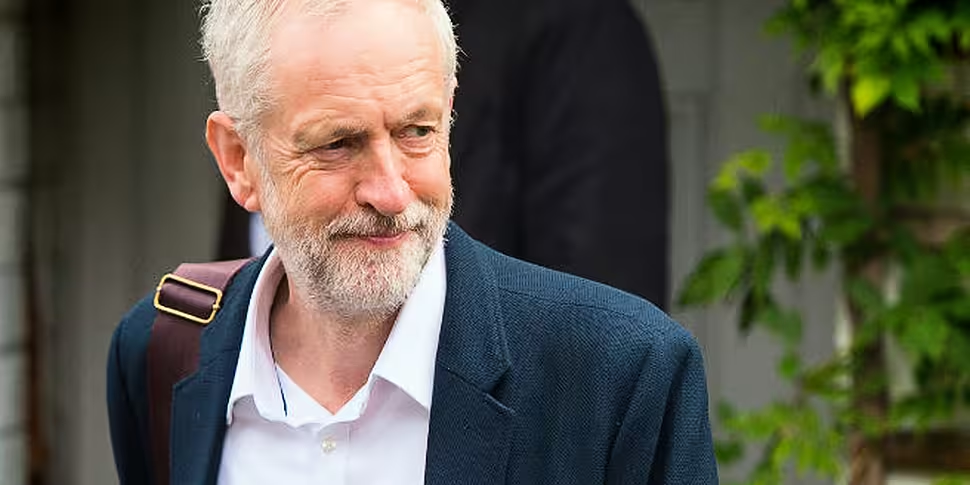Jeremy Corbyn has told British people they "don't have to accept what they are given" in the first major speech of his leadership.
The Labour leader hit out at the Conservatives' austerity approach to the economy, saying it was "outdated" and "utterly failed".
And he said they had not provided the family security they promised, adding: "Where's the security for families shuttled around the private rented sector on six-month tenancies - with children endlessly having to change schools?"
Mr Corbyn hit out at the rich few and said people did not have to accept it was the way the world should work.
He said: "Some people have property and power, class and capital, status and clout which are denied to the many.
"And time and time again, the people who receive a great deal tell the many to be grateful to be given anything at all."
And he said that Labour would challenge the Conservatives on cuts, saying the party's message was: "You may be born poor but you don’t have to stay poor. You don’t have to live without power and without hope.
"You don't have to set limits on your talent and your ambition - or those of your children."
And he called on the Prime Minister to intervene to save up to 1,700 workers who are to lose their jobs after Thai firm SSI announced it was closing its iron and steel making works at Redcar on Teesside.
He promised action to build more homes, improve mental health care, make all schools accountable to local councils, extend maternity and paternity pay to the self-employed and invest in infrastructure through a National Investment Bank but there was little in the way of concrete policies.
In a 59-minute speech, during which he read from an autocue, Mr Corbyn made just one slip up where he read out "insert strong message".
He promised a "kinder politics" and urged activists from all parties to stop the "cyberbullying" and "misogyny" online.
Mr Corbyn said: "I want a kinder politics, a more caring society. Don’t let them reduce you to believing in anything less.
"So I say to all activists, whether Labour or not, cut out the personal attacks. The cyberbullying. And especially the misogynistic abuse online. And let’s get on with bringing values back into politics."
Mr Corbyn also has used his speech to hit out at Tony Blair over the Iraq War, saying hundreds of brave British soldiers lost their lives without good reason.
The new Labour leader told the Labour Party Conference in Brighton that Britain had gone to war on "a false prospectus" in "defiance of the United Nations".
He said the war had not helped the country's national security and railed against British arms sales to other countries and the "fawning support" of Saudi Arabia and Bahrain, which "abused their own citizens".
He said: "It didn’t help our national security when we went to war with Iraq in defiance of the United Nations and on a false prospectus.
"It didn’t help our national security to endure the loss of hundreds of brave British soldiers in that war while making no proper preparation for what to do after the fall of the regime."
Mr Corbyn has made clear he intends to apologise, on behalf of the party, for the Iraq war but it is understood he did not go that far in his speech because the Chilcot review of Britain's role in the conflict has yet to be published.
Mr Corbyn also warned against British military intervention in Syria and said: "We all want the atrocities to stop and the Syrian people free to determine their own destiny.
"But the answer to this complex and tragic conflict can’t simply be found in a few more bombs."
And Mr Corbyn, who painted himself as a patriot who "loves his country", renewed his no-nukes pledge as he promised a review of Britain's defence capabilities in the first major speech of his leadership.
The Labour leader said the threats Britain faced were different from those of the Cold War and he would not support the renewal of the Trident nuclear deterrent.
He told the conference, which has not debated the issue after members voted not to include it on the issues to be discussed, that he had asked his shadow defence secretary, Maria Eagle, to lead a review.
It was notable that few of the shadow cabinet members applauded his promises on Trident.
Shadow foreign secretary Hilary Benn has already made clear he supports the renewal of Trident, which is due to be decided on by the Government next year. As has shadow justice secretary Lord Falconer, a key member of Mr Blair's Labour government.
However, despite his promises of "solidarity" Mr Corbyn is struggling to bring unity to his own party and his radical left-wing agenda has caused significant rifts.
There have been talks of a Corbynite plot to purge the moderates from the party and at a Progress event earlier in the conference a defiant Liz Kendall, who was a leadership contender, warned they were not going anywhere.
A number of more "Blairite" party members did not even stay for the leaders' speech - former shadow business secretary Chuka Umunna among them.









